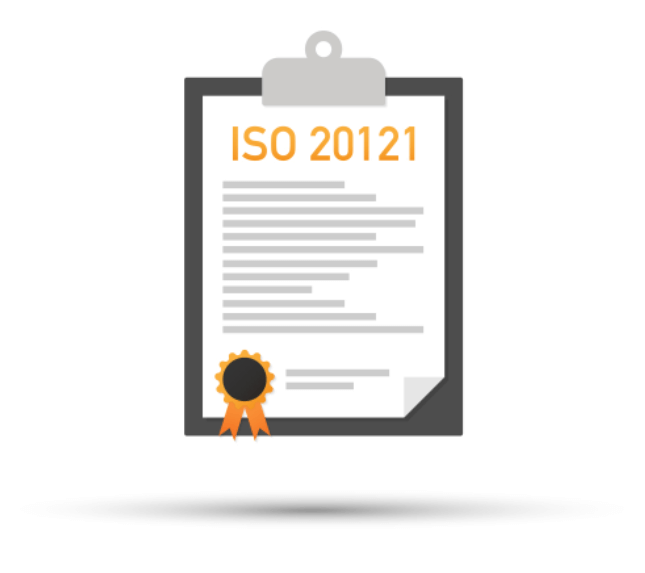What is ISO 20121:2012 Sustainability Event Management System?
ISO 20121:2012 is an international standard that specifies the practices that organizations in the event industry need to have in place to improve the sustainability of their services. The standard guides organizations of all sizes in managing social, economic, and environmental impacts. While addressing these aspects, the standard addresses every stage of the events’ supply chain. Considering that the standard is flexible, it responds to the unique culture and nature of multiple organizations organizing the event.
- This standard contributes to a better society and reduces an organization’s environmental impact.
- Consider all critical financial, economic, social, and environmental issues relevant to your business operation.
- Incredibly, this is so great for the economy and people getting together to have a great time; however, the sad fact is that these events devastate our planet.
Quick Navigation
What is Event Sustainability?
Event Sustainability is a principle, a philosophy in managing events that take into consideration three essential aspects:
- Environmental Protection
- Social Growth
- Economic Progress

We are looking at an enduring balance in risk approach to make sure that these three perspectives are integrated into the planning of events, into the execution of the plans, along with the commitment to review and make sure that any negative impact socially, economically, and environmentally are managed and reduced to its minimal level, to be able to leave a better effect, to leave a better operation and make a difference to the running of the events.
Background of ISO 20121
Every Event – from a village barbecue to a major sporting event like the Olympics – Will have economic, social, and environmental impacts. Water and energy resources are put under pressure, and significant amounts of waste and carbon emissions can be generated. Sometimes events can put a strain on local communities.
By 2005, practitioners within the events industry were becoming aware of the need for more sustainable practices. Specifically, the Head of Sustainability at the London 2012 Olympic and Paralympic Games, David Stubbs, was looking for a way to make good on the sustainability promises made in the London Games bid. He raised the issue with the British Standards Institution in the UK. This led to the creation of BS 8901:2007 Specification for a sustainable event management system with guidance for use. After a review period, the second version of BS 8901 was published in 2009. BS 8901 was received very positively by the international event industry and was soon being widely used.
For Example, COP15, the United Nations Conference on Climate Change, was certified as compliant with BS 8901 in December 2009. The Microsoft Corporation achieved certification to BS 8901 at its Microsoft Convergence 2009 event in New Orleans, Louisiana, in March 2009.
Development of ISO 20121
Responding to this international enthusiasm for BS 8901, in May 2009, a proposal for an International Sustainable Event Management Standard was jointly submitted to the International Organization for Standardization (ISO) by the BSI group and ABNT, the Brazilian national standards body. Delegations of experts of the national standards institutions of 25 countries developed the standard, with another ten countries as observed. Eight stakeholder organizations from the vent industry or with a strong interest in sustainability participated.

Members of the sustainability team of the London 2012 Olympic and Paralympic Games were among the stakeholders who provided input into developing the standard. Subsequently, ISO 20121:2012 Event Sustainability Management Systems – Requirements with guidance for use was published in June 2012.
What is ISO 22301 Certification?
ISO 22301 Certification sets up a structure by which we look into the leading element and the context that the stakeholder services; we are also likewise looking at the planning aspects that consider risk-based thinking, which is essential to managing an event. We are looking at plans, and we know that execution of plans will then be the matter of the heart of the event’s success and if the plan depends upon the risk and leadership that is sorted with it.
So, this integration of leadership, risk-based thinking, planning, and effective execution of those plans necessitate proper implementation. Evidence-based would lead to awareness of where we need improvement for the subsequent events because it’s not one of the events; we can always look into the continuity, the repeating, and frequency of managing events.
What are the benefits of ISO 20121?
ISO 20121 is a voluntary international standard for sustainable event management created by the International Organization for Standardization. The standard aims to help organizations improve sustainability throughout the event management cycle. There are vital and unique benefits of ISO 20121:
- ISO 20121 gives a competitive advantage if sustainable requirements are a part of RFT.
- It can achieve efficiency across all aspects of event planning
- It demonstrates a systematic approach to sustainable development principles and legal compliance.
- It makes tracking and recording your sustainable performance consistent and much more manageable.
- The supply chain will inevitably become more sustainable for the event management industry and others.
How does ISO 20121 Work?
ISO 20121 is relevant to all event industry supply chains, including organizers, event managers, stand builders, caterers, and logistic suppliers. The standard takes a management systems approach to run more sustainable events. It provides a framework to help identify events’ potentially negative social, economic, and environmental impacts.
Organizers can then remove or reduce harmful effects through improved planning and processes. This should lead to improvements in key sustainability issues such as venue selection, transport, recycling or reusing demolition waste, creating a sustainable food strategy, promoting healthy living and building skills, employment, and business legacies. The standard can reduce costs, carbon emissions, and waste, manage venues’ biodiversity better, and achieve a diverse and inclusive workforce. ISO 20121 also includes:
- Practice guidance of communications.
- Operational planning and control.
- Stakeholder identification and engagement.
- Supply chain management and procurement.
- Issue evaluation.
ISO 20121 is suitable for all sizes and types of events. Organizations can demonstrate voluntary conformity with ISO 20121 by either: First-party declaration; Second party confirmation of conformance by parties interested in the organization, such as clients; or by certification by an independent third party, e.g., a certification body.
What are ISO 20121 Certification Requirements?
The Organization shall establish, document, implement and maintain a quality management system and continually improve its effectiveness by the requirements of this International Standard.
The Organization shall
- Determine the processes needed for the quality management system and their application throughout the Organization.
- Determine the sequence and interaction of these processes.
- Determine the criteria and methods needed to ensure that these processes’ operation and control are effective.
- Ensure the availability of resources and information necessary to support the operation and monitoring of these processes.
- Monitor measures where applicable and analyze these processes.
- Implement actions necessary to achieve planned results and continual improvement of these processes.
A Management System should have
- An effective audit program.
- The Scheduled audits are based on the risk and importance of processes.
- Effective audit checklists.
- Review and follow up on corrective actions.
- Management Review Meeting.
ISO 20121 Certification in Pakistan
Whether big or small, Events in Pakistan can leave footprints in society and the environment by generating harmful waste. By getting ISO 20121 Certification in Pakistan, you will host the same event with minimal risks and impacts. Moreover, when incidents occur, you will continually improve the processes and take measures earlier than ad-hoc approaches.

ISO 20121 benefits the event organizers, owners, workforce supply chain, attendees, and communities. By becoming ISO 20121 certified, you will prove to the audience that you care about the social, environmental, and economic impacts while organizing events. Likewise, you will gain worldwide recognition for your sustainable services and products. This means that obtaining an ISO 20121 certification will protect your surroundings, reduce your costs, and increase your profits.
What is ISO 20121 Certification Cost?
Organizations that want to reduce costs without compromising sustainability look at 20121 certifications as a value-for-money solution in today’s competitive environment. However, it is impossible to determine the cost without a detailed risk assessment. Price also depends on many factors like:
- Size of Organization.
- Structure of Operations.
- Maturity and Complexity of Existing Systems.
Generally, this certification cost in Pakistan is not much compared to the improved productivity and brand equity benefits it offers to organizations.
Why Choose Us?
ISO certification is often a treacherous and confusing field to navigate. TUV Austria Bureau of Inspection & Certification helps businesses accomplish ISO certification quickly, cost-effectively, and efficiently.
Our skilled ISO implementation experts are committed to our customers, unique needs, and timelines. TUV Austria Bureau of Inspection & Certification audits entail a diligent and thorough gap assessment integrating quality, safety, and sustainability.
We are your one-stop-shop for certification, training, and inspections.
Our special focus on implementation goes beyond compliance requirements. Our process-based approach allows our clients to achieve tangible and sustainable growth goals.
In Addition, to ISO 20121 service, we also offer a range of complimentary services:
- ISO 9001 – Quality Management System
- ISO 14001 – Environmental Management System
- ISO 45001 – Occupational Health & Safety Management System
- ISO 55001 – Asset Management — Management Systems Requirements
- ISO 27001 – Information Security Management System
- ISO 20000 – IT Service Management System
- ISO 22000 – Food Safety Management System
- HACCP – Food Safety Management System
- Halal Certification
- ISO 21001 – Educational Organizations Management System
- ISO 29990 – Learning Services Management System
- ISO 22301 – Business Continuity Management System
- ISO 37001 – Anti-Bribery Management System
- ISO 28000 – Supply Chain Security Management System
- ISO 13485 – Quality Management Systems for Medical Devices
- ISO 39001 – Road Traffic Safety Management System
- ISO 31000 – Risk Management – Guidelines
- ISO 22716 – Good Manufacturing Practices for Cosmetics
TUV Austria Bureau of Inspection and certification is here to cater to all your inspection requirements. To Send Enquiry, click on the button below.